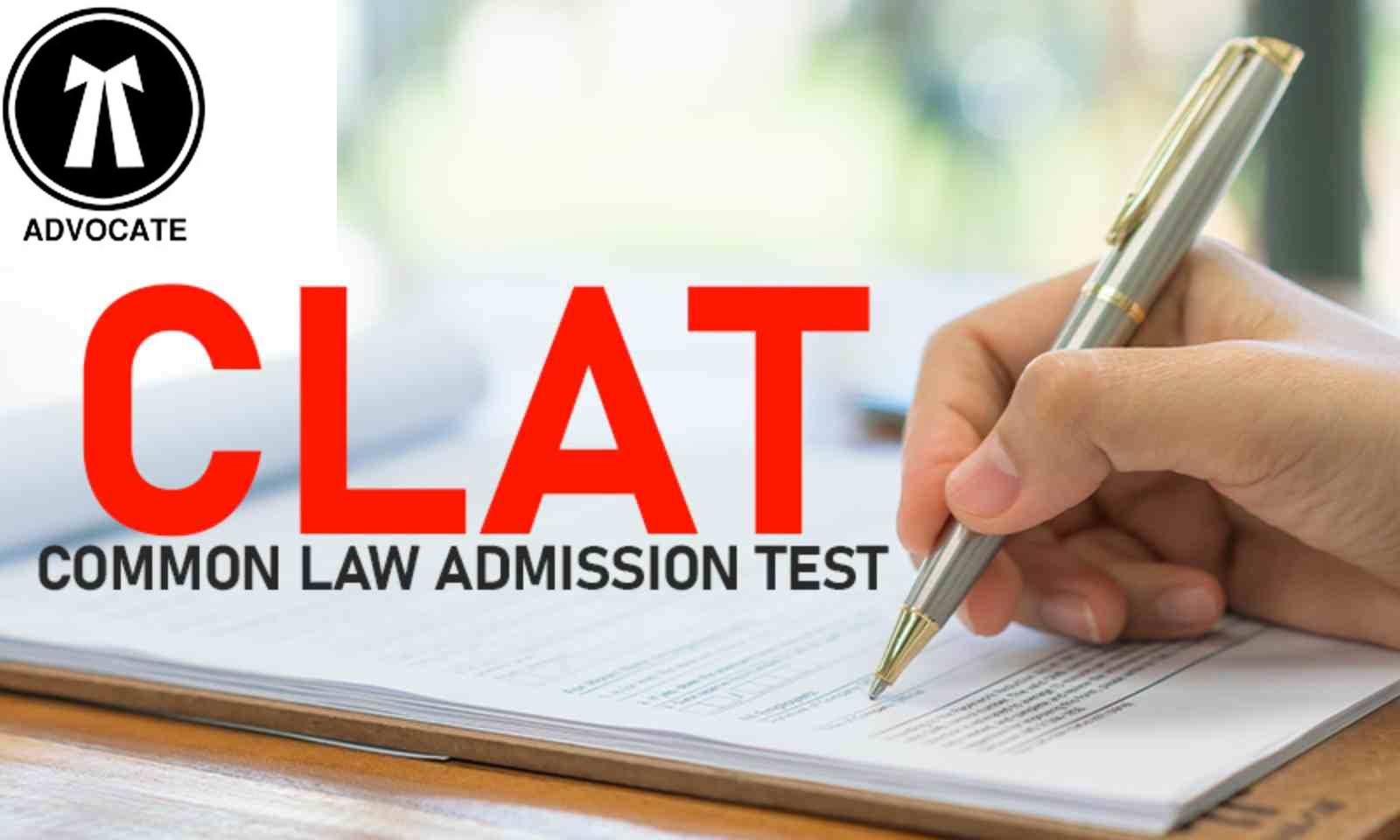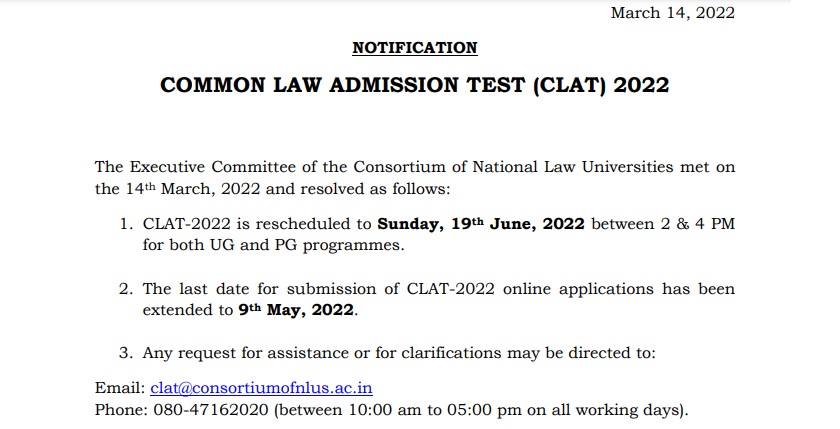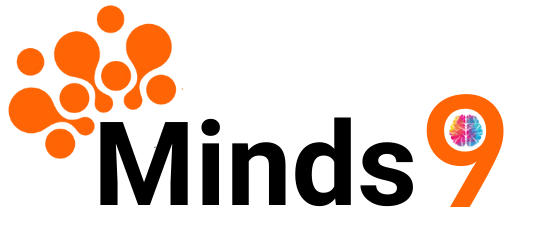- April 10, 2022
CLAT- A gateway to National Law Universities

Is your dream to make your child to become a Chief Justice of India or Supreme Court Judge or a famous Lawyer, he/she has to obtain a degree in Law. If it is from a reputed institution, the scope of career in Law will be higher and easier.

In addition to the 22 NLUs, most private and self-financed law schools in India also use these scores for law admissions.
Apart from the admission into NLUs, Public sector undertakings in India like ONGC, Coal India, BHEL, Steel Authority of India, Oil India etc. use CLAT Post Graduation (CLAT PG) scores for recruitment of legal positions in the companies
CLAT is organized by the Consortium of National Law Universities consisting of the representative universities.
CLAT-2022
Who are eligible?
The test is taken after the Higher Secondary Examination or the 12th grade (10+2) for admission. Candidates who are appearing in the qualifying examination in March/April, 2022 are also eligible to appear in CLAT 2022 examination.
The following National Law Universities will be participating in CLAT 2022:
- National Law School of India University, Bangalore (NLSIU)
- National Academy of Legal Study & Research University of Law, Hyderabad (NALSAR)
- National Law Institute University, Bhopal (NLIU)
- The West Bengal National University of Juridical Sciences, Kolkata (WBNUJS)
- National Law University, Jodhpur (NLUJ)
- Hidayatullah National Law University, Raipur (HNLU)
- Gujarat National Law University, Gandhinagar (GNLU)
- Ram Manohar Lohiya National Law University, Lucknow (RMLNLU)
- Rajiv Gandhi National University of Law, Patiala (RGNUL)
- Chanakya National Law University, Patna (CNLU)
- National University of Advanced Legal Studies, Kochi (NUALS)
- National Law University, Cuttack, Odisha (NLUO)
- National University of Study & Research in Law, Ranchi (NUSRL)
- National Law University & Judicial Academy, Guwahati, Assam (NLUJAA)
- Damodaram Sanjivayya National Law University, Visakhapatnam (DSNLU)
- Tamil Nadu National Law School, Tiruchirappalli (TNNLS)
- Maharashtra National Law University, Mumbai (MNLU)
- Maharashtra National Law University, Nagpur (MNLU)
- Maharashtra National Law University, Aurangabad (MNLU)
- Himachal Pradesh National Law University (HPNLU)
- Dharmashastra National Law University, Jabalpur (MPDNLU)
- B.R. Ambedkar National Law University, Rai, Sonipat (DBRANLU)
Pattern of CLAT 2022 (Under-Graduate Programme)
The UG-CLAT 2022 shall be a 2-hour test for 150 marks, with 150 multiple-choice questions carrying 1 mark each. There shall be negative marking of 0.25 marks for every wrong answer. These questions would be divided across the following 5 subjects:
- English Language
- Current Affairs, including General Knowledge
- Legal Reasoning
- Logical Reasoning
- Quantitative Techniques
| Subject wise with Weightage of questions | |
| English Language | 28-32 questions, or roughly 20% of the paper |
| Current Affairs including General Knowledge and | 35-39 questions, or roughly 25% of the paper |
| Legal Reasoning | 35-39 questions, or roughly 25% of the paper |
| Logical Reasoning | 28-32 questions, or roughly 20% of the paper |
| Quantitative Techniques | 13-17 questions, or roughly 10% of the paper |
English Language
In this section of the UG-CLAT 2022, passages of about 450 words each will be provided and these passages will be derived from contemporary or historically significant fiction and non-fiction writing, and would be of a standard that a 12th standard student may be able to read in about 5-7 minutes. Each passage will be followed by a series of questions that will require you to demonstrate your comprehension and language skills, including your abilities. to:
Current Affairs Including General Knowledge
In this section, passages of up to 450 words each will be provided. The passages will be derived from news, journalistic sources and other non-fiction writing related to Contemporary events of significance from India and the world, Arts and culture, International affairs and Historical events of continuing significance.
Each passage will be followed by a series of questions that will require you to demonstrate your awareness of various aspects of current affairs and general knowledge.
Legal Reasoning
In this section, passages of up to 450 words each will be provided. The passages may relate to fact situations or scenarios involving legal matters, public policy questions or moral philosophical enquiries. You will not require any prior knowledge of law. You will benefit from a general awareness of contemporary legal and moral issues to better apply general principles or propositions to the given fact scenarios.
Each passage would be followed by a series of questions that will require you to:
- Identify and infer the rules and principles set out in the passage;
- Apply such rules and principles to various fact situations; and
- Understand how changes to the rules or principles may alter their application to various fact situations.
Logical Reasoning
The Logical Reasoning section of the UG-CLAT 2022 will include a series of short passages of about 300 words each. Each passage will be followed by one or more questions that will require you to:
- Recognize an argument, its premises and conclusions;
- Read and identify the arguments set out in the passage;
- Critically analyse patterns of reasoning, and assess how conclusions may depend on particular premises or evidence;
- Infer what follows from the passage and apply these inferences to new situations;
- Draw relationships and analogies, identify contradictions and equivalence, and assess the effectiveness of arguments.
Quantitative Techniques
The Quantitative Techniques section of the UG-CLAT 2022 will include short sets of facts or propositions, graphs, or other textual, pictorial or diagrammatic representations of numerical information, followed by a series of questions. You will be required to derive information from such passages, graphs, or other representations, and apply mathematical operations on such information.
The questions will require you to:
- Derive, infer, and manipulate numerical information set out in such passages, graphs, or other representations; and
- Apply various 10th standard mathematical operations on such information, including from areas such as ratios and proportions, basic algebra, mensuration and statistical estimation.
Preparing Strategy and Material Resources for the UG-CLAT 2022
The Consortium plans to publish various preparatory materials for the UG-CLAT 2022, including:
- Guides to the question paper and sample questions;
- Model question papers; and
- Instructional materials and exercises for each of the subjects that the UG-CLAT 2022 comprises.
- The Consortium will also provide candidates who have successfully completed their application to the UG-CLAT 2022 access to a learning platform where you may access the preparatory materials described above, as well as your scores on various exercises and model question papers.
- In addition, you should develop your capacity to read and understand bodies of text, ensure you stay abreast of news and current affairs by regularly reading quality newspapers and periodicals, and improve your speed of answering questions on quantitative techniques by practising with materials such as 10th standard mathematics textbooks.
Sample Questions
Please visit the consortium webpage for sample questions, preparation strategies and source of material and updates on Exam.
https://consortiumofnlus.ac.in/clat-2022/

